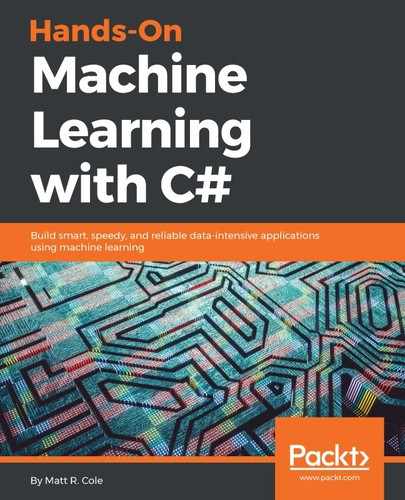We will end this series with the beginning of another topic, quantum computing. Quantum computing is the future, it's coming, and it's real. It uses quantum-mechanical phenomena, such as superposition and entanglement, and bases its computations on something called quantum bits (qubits). Where normal computers are transistor-based and use the ever-famous one and zero, quantum computing uses qubits, which can be in superpositions of a state, not just on or off.
At the time of writing, quantum computing is still in its infancy, but progress is being made. As such, this chapter will be short, but we want to expose you to the future so that you are aware.
In this chapter, we will cover:
- Superposition
- Teleportation
Many experiments are being run, and Microsoft has released its quantum computing Software Development Kit (SDK). Both Microsoft and IBM are developing their own versions of quantum computers. But before we get to that, let's go over a few terms you'll need to know. These will go into your super buzzword-compliant checklist!
Here is a Bloch sphere, which is a qubit representation in Hilbert space, and it is the most fundamental component of quantum computing:

A classical computer has its memory made up of bits—ones and zeros. A quantum computer, however, is comprised of a series of qubits. A single qubit can represent a one, a zero, or any quantum superposition of these two qubit states. A single qubit can be in any one of two states. A pair of qubits can be in any superposition of two states, and three qubits can be in any superposition of eight states. So, quantum computers can be in superpositions of many different states, whereas conventional computers can only be in one of those states at any given moment in time.
A quantum computer operates using quantum gates and quantum logic gates (similar to logic gates for a conventional computer), and the problem it is trying to solve is encoded by setting the initial values of the qubits, just like a conventional computer does. Quantum algorithms are considered mostly probabilistic, in that they provide a correct solution only with a known probability:

Qubits are made up of controlled particles and the means of control (for example, devices that trap particles and switch them from one state to another).
